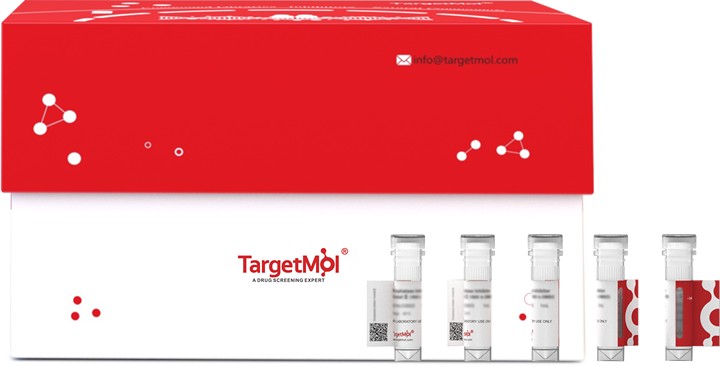Shopping Cart
Remove All Your shopping cart is currently empty
Your shopping cart is currently empty
CCL2 Protein, Mouse, Recombinant (HEK293) is expressed in HEK293 Cells. The accession number is Q5SVU3.

| Pack Size | Price | USA Warehouse | Global Warehouse | Quantity |
|---|---|---|---|---|
| 5 μg | $113 | - | In Stock | |
| 10 μg | $143 | - | In Stock | |
| 20 μg | $172 | - | In Stock | |
| 50 μg | $326 | - | In Stock | |
| 100 μg | $538 | - | In Stock | |
| 200 μg | $898 | 7-10 days | 7-10 days | |
| 500 μg | $1,770 | 7-10 days | 7-10 days | |
| 1 mg | $2,970 | 7-10 days | 7-10 days |
| Biological Activity | The EC 50 value of mouse MCP-1/CCL2 on Ca 2+ mobilization assay in CHO-K1/Ga15/mCCR2 cells (human Ga15 and mouse CCR2 stably expressed in CHO-K1 cells) is less than 0.3 μg/ml. |
| Description | CCL2 Protein, Mouse, Recombinant (HEK293) is expressed in HEK293 Cells. The accession number is Q5SVU3. |
| Species | Mouse |
| Expression System | HEK293 Cells |
| Tag | Tag Free |
| Accession Number | Q5SVU3 |
| Synonyms | Monocyte Chemotactic Protein-1,MCP1,MCAF,JE,CCL2 |
| Construction | Gln24-Arg96 |
| Protein Purity | > 98% as determined by SDS-PAGE |
| Molecular Weight | ~8 kDa (Reducing conditions) |
| Endotoxin | < 0.2 EU/μg of protein as determined by the LAL method. |
| Formulation | Lyophilized from a 0.2 μm filtered solution in PBS. |
| Reconstitution | Reconstitute the lyophilized protein in sterile deionized water. The product concentration should not be less than 100 μg/ml. Before opening, centrifuge the tube to collect powder at the bottom. After adding the reconstitution buffer, avoid vortexing or pipetting for mixing. |
| Stability & Storage | Upon receiving, this product remains stable for up to 6 months at lower than -70°C. Upon reconstitution, the product should be stable for up to 1 week at 4°C or up to 3 months at -20°C. For long term storage it is recommended that a carrier protein (example 0.1% BSA) be added. Avoid repeated freeze-thaw cycles. |
| Shipping | In general, lyophilized powders are shipped with blue ice, while solutions are shipped with dry ice. |
| Research Background | Chemokine (C-C motif) ligand 2 (CCL2) is also referred to as monocyte chemotactic protein 1 (MCP1) and small inducible cytokine A2. CCL2 is a small cytokine that belongs to the CC chemokine family. CCL2 recruits monocytes, memory T cells, and dendritic cells to the sites of inflammation produced by either tissue injury or infection. CCL2 is implicated in the pathogeneses of several types of disease characterized by monocytic infiltrates, such as psoriasis, rheumatoid arthritis and atherosclerosis. CCL2 is anchored in the plasma membrane of endothelial cells by glycosaminoglycan side chains of proteoglycans. CCL2 is primarily secreted by monocytes, macrophages and dendritic cells. CCL2 can signal through the CCR2 receptor. |
| Size | Quantity | Unit Price | Amount | Operation |
|---|

Copyright © 2015-2026 TargetMol Chemicals Inc. All Rights Reserved.